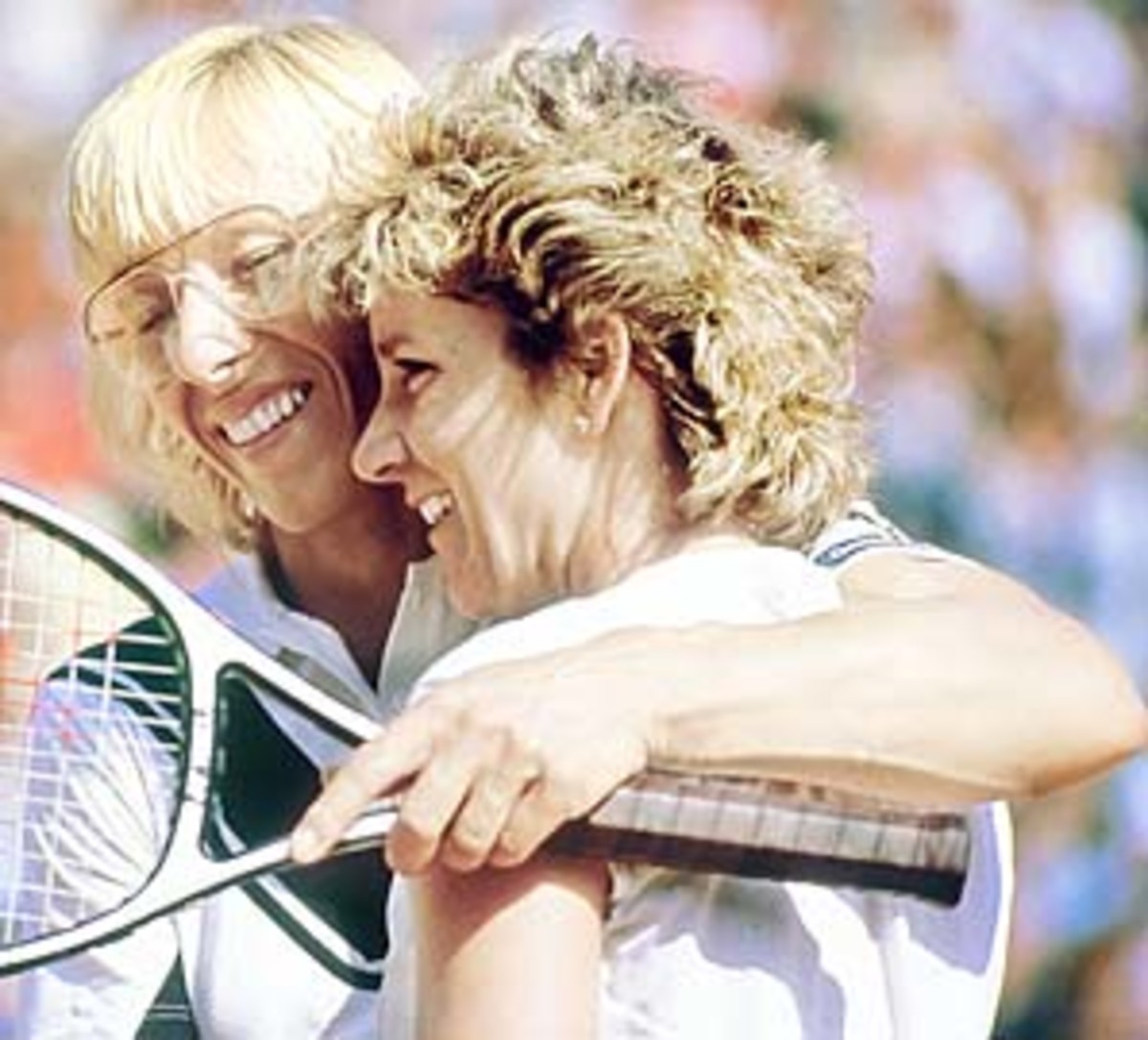Serena Williams' dominance unrivaled in women's tennis


The most spirited sports debates never quite get settled. Mays and Mantle, Palmer and Nicklaus, Russell and Chamberlain -- there's so much evidence on either side, there's really no closure to the arguments.
Here's something that's beyond question: In the history of women's tennis, nobody has crushed the notion of "rivalry" quite like Serena Williams.
We find her now, at 31, without a single adversary of equal worth. When presented a serious challenge from the tour's top players, she seems to be more fearsome than ever. We saw it just last weekend when, in Madrid, she scored her 12th straight win over Maria Sharapova (13-2 overall) with a convincing 6-1, 6-4 victory in the final.
Williams has always been vulnerable to the occasional surprise. Sloane Stephens can boast that it's all even, one victory apiece, in what could develop into a rivalry. Samantha Stosur is a respectable 3-6 against Williams, including a dramatic win in the 2011 U.S. Open final and another in the 2010 French Open quarterfinals.
Report Card: Grades for Madrid's best, worst
In the world of front-page headlines and historical context, however, Serena's record is astoundingly good. Some would claim that third-ranked Victoria Azarenka is the most talented player in the world, yet she's 2-12 against Serena. Scanning the rest of the current top 10, we find Agnieszka Radwanska at 0-5, Li Na at 1-7, Sara Errani at 0-5, Petra Kvitova at 0-4 and Caroline Wozniacki at 1-5. (The other two are Stosur and Angelique Kerber, who hasn't seen much of Serena and stands at 1-2.)
Williams also holds lifetime edges over former No. 1s Ana Ivanovic, Jelena Jankovic, Lindsay Davenport, Jennifer Capriati, Amelie Mauresmo and Kim Clijsters, as well as two-time major titlist Svetlana Kuznetsova. Although there was some early promise to the matchups between Serena and her sister Venus, the younger Williams now holds a 14-10 edge, including the last five straight.
Looking back, the most serious threats to Serena's dominance came in the early stages of her career. Arantxa Sanchez Vicario and Martina Hingis played her straight-up, particularly on clay, and Williams was just 8-6 against Justine Henin (four of the losses on clay), who retired too early to give their rivalry a full life.
WERTHEIM: Roland Garros favorites now clear
The really stunning part is that Williams, at an age that suggests retirement for so many players, has separated herself from the world's top players in the manner of Tiger Woods in his prime. And you wonder: In women's tennis, when has this happened before?
Martina Navratilova and Chris Evert had a rivalry for the ages, right through to the end of their careers, each scoring titanic victories along the way. Tracy Austin, after throwing such a scare into both players in her teens, developed back problems and was virtually finished before she turned 21. Steffi Graf was being severely challenged by Monica Seles before the tragic stabbing in Hamburg, and even with the advantage of youth, she was just 9-9 against Navratilova and 7-6 against Evert.
Margaret Court, who owns the career record of 24 major singles titles, probably comes the closest to Williams' late-in-life track record in the modern era. She and Billie Jean King were rivals from 1961 through '75, and Court won four of their five confrontations in major finals, along with an overall 21-13 edge. Still, it wouldn't be quite accurate to say Court was dominant -- not in the manner in which Williams dispatches Sharapova and Azarenka today. King won six majors while Court was playing (taking into account Court's family-related breaks) and earned the year-end No. 1 ranking three times. She was Billie Jean King, for crying out loud. Nobody "owned" that woman in any sense.
Serena Q&A: One match she'd like to have back
In the post-World War II era, the U.S. had world-renowned players in Pauline Betz, Louise Brough, Doris Hart, Shirley Fry and Margaret Osborne duPont, rivalries abounding, each gaining more than her share of the glory. Maureen Connolly was the world's undisputed No. 1 from 1952-54, never losing an important match and becoming the first woman to win the Grand Slam (1953). She was just 16 when she won her first U.S. Championships (later the U.S. Open). But at 20, while on horseback, she was struck by a truck and severely injured a leg, never to play competitive tennis again.
Historians would remind us not to forget Helen Wills Moody, whose eight Wimbledon titles stood as the record until Navratilova scored her ninth in 1990. Wills was absolutely dominant, holding a 10-1 edge against her primary American challenger, Helen Jacobs. But in Wills' case, sadly, there was a rivalry that never took place.
In the mid-1920s, Wills and the graceful Frenchwoman Suzanne Lenglen were the best players in the world. They played a match at Cannes, in 1926 that drew international attention and an overflow crowd. Lenglen prevailed 6-3, 8-6, and as Bud Collins described it in his History of Tennis, "Lenglen, not yet 27, was at the crest of her game, with six Wimbledon championships in her possession. Wills' game at 20 had not quite attained full maturity, though she had been in the Wimbledon final of 1924. Their rivalry was limited to a single meeting, for later that same year, Wills was stricken with appendicitis and Lenglen turned pro."
It was also quite uncommon, in those days, for players to make regular trips overseas. What a contrast to today's game, where the top players are routinely showcased worldwide and the globalization of the WTA becomes more impressive by the year. For Serena Williams to be playing in this era, at this age, without a serious rival, gives her a singular place in history.
